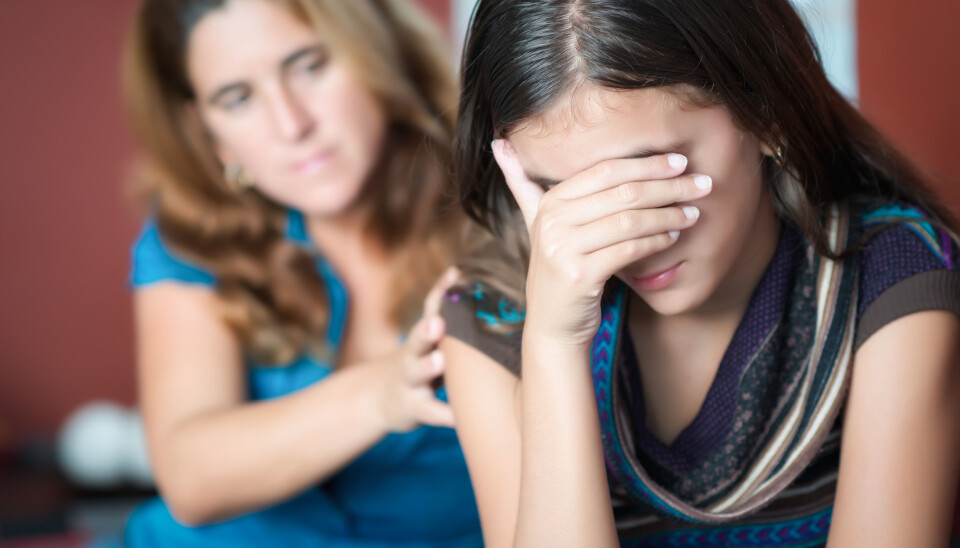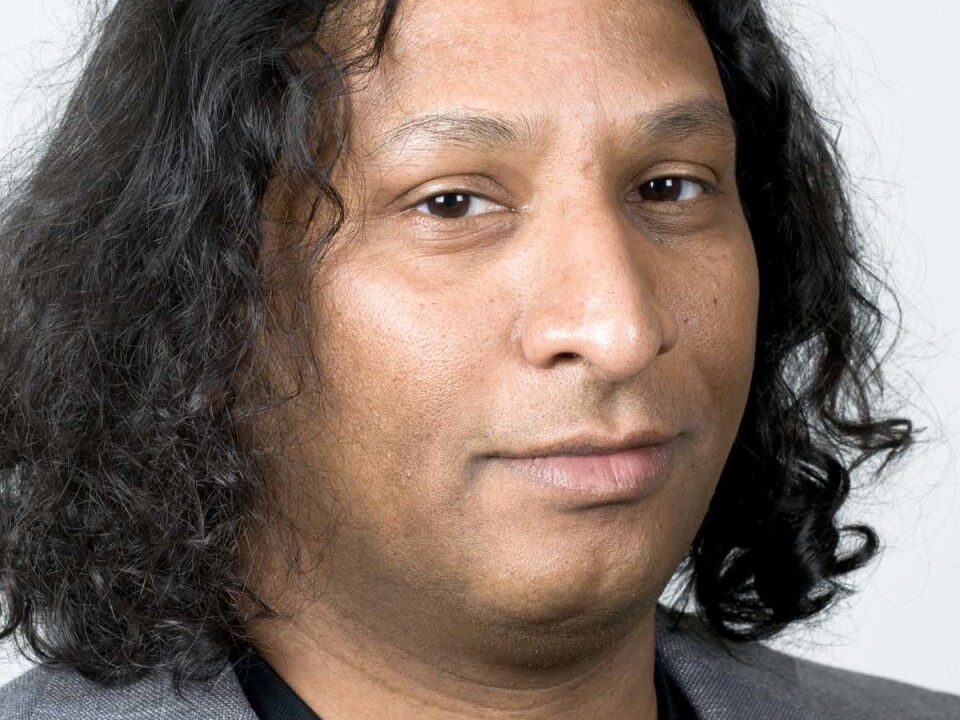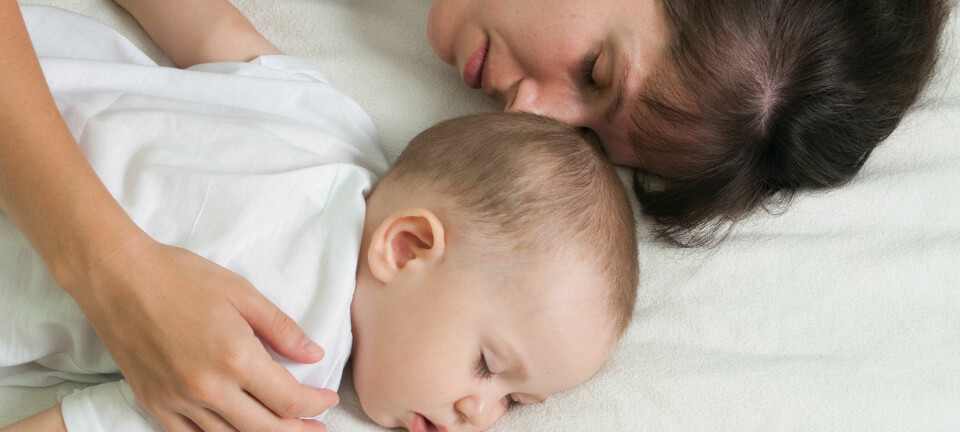
Parents learn to listen to their depressed teens
Family-based therapy model focuses on fixing relationships before tackling depression.
Denne artikkelen er over ti år gammel og kan inneholde utdatert informasjon.
When teens seek deeper conversations than typical everyday superficiality in families, parents may feel threatened. Seeing one’s child with no friends, sleeping through class or dropping out of activities is painful.
Young people may be overwhelmed by feelings of loneliness and hopelessness. They want their parents to listen.
But parents want to fix their child’s problem. In Norway, individual therapy and medications constitute the most common treatment approaches for depression or suicidal ideation, and parents are often sidelined while their teen is undergoing treatment.
Enter Pravin Israel, a child psychologist who believes that parents need to be more involved when it comes to treatment for depressed and suicidal youth.
Norwegian research modelled on American family therapy method

Pravin is a senior researcher at Akershus University Hospital (Ahus) and Associate Professor at the University of Oslo (UiO). He is now heading up a large study of almost 100 families to test the effectiveness of family-based treatment.
The adolescent study participants are divided into two groups. One group is receiving the traditional therapy offered by Norwegian Children and Youth Polyclinics (BUP). The other group is receiving treatment based on the American Attachment-Based Family Therapy method (ABFT).
ABFT treats young people with major depressive disorder in a more systematic way than traditional therapy does, and has been shown to be effective in the USA. ABFT was also a more successful form of therapy than individual therapy in Israel’s earlier pilot study in Stavanger.
The ABFT method focuses on healing the relationship between children and parents first, before addressing other issues, such as depression. This is the reverse of traditional family therapy, in which the therapist explores problems with family members as they arise.
Step-by-step preparation and guidance

The ABFT form of therapy being tested by the BUP Department at Ahus is the first family therapy program in the world that has been systematically designed for adolescents with depression and suicide issues. The therapy progresses in a step-by-step fashion.
“Often traditional family therapy can fail, because the family isn’t prepared for what comes up,” says Israel. “So we place a lot of stress on preparation. We know ahead of time what issues the adolescents will bring up, and we guide parents on how to talk to their teens.”
The therapist has to be active in this type of therapy, and it requires the therapist to be direct, open and able to deal with a lot of emotion. The therapy sets high standards for training and guidance and is not a method that suits all therapists, Israel says.
Learning to listen first
For young people with depression, conflicts with parents revolve around deeper issues in their relationship than homework or being grounded. Often these adolescents think their parents don’t love them, or that they have failed or that parents demand too much of them. Coupled with other stressors such as divorce, the gap between parents and children widens even more, and many of these young people have minimal communication with their parents.
Therapists participating in this study help adolescents and parents identify the problems in their relationship. The next step is to help the teens articulate their frustration and tell their story as they experience it. Then the therapist talks with parents about their child’s frustration and helps them learn to listen to their child.
“Young people want their parents to listen to them and understand their world, says Israel. But teens don’t want parents to immediately come up with solutions to their problems.
Israel says this is a mistake many parents make when they find it difficult to cope with their child’s pain. They so want to fix the problems that they don’t take the time to listen.
Building trust at the core of healing
Parents also have a tendency to become defensive when youngsters bring up conflict issues, he said. When a young person says, "You weren’t there for me because you were so wrapped up with yourself," it can be difficult for parents to accept the criticism. Often they give excuses or start to cry.
Then attention shifts from adolescent to parent, which stops communication in its tracks.
Israel shares the story of a girl in the study. She’s always been daddy’s girl. But Dad moved out and had a new family. His daughter doesn’t have much contact with him anymore, and she feels that he no longer cares about her. The result is a lot of anger and frustration. The girl feels alone in the world.
When the daughter brought this up in therapy, her father was confused. He thought he had been there for her, even after the divorce.
Many parents are uncertain about their own parenting role, and how to balance a friendly relationship with clear boundaries for their children.
“Even if you're friends with your son or daughter, you also need to be authoritative- which is different from being authoritarian. You have to set expectations and good boundaries, while also providing love and support,” says Israel.
If young people feel safe with their parents, they can argue with them without fear of rejection. If they are unsure how parents will react, they become much more cautious about being critical. Then they may withdraw into themselves and have problems.
A breakthrough in therapy is when young people find that they can say things to mom and dad, without them getting angry or negative. When parents listen and teens experience being heard, trust is built up again. This can strengthen the relationship between parents and children, Israel says.
Contributes to healing
Professor Lars Mehlum chairs the National Centre for Suicide Research and Prevention, connected to the University of Oslo. He believes that evidence-based psychotherapy and medications are good treatment options for depression in young people, both separately and in combination.
“However, the response of adolescents to drug treatment for moderate depression is on average lower than in adults,” says Mehlum, “so psychotherapy is often the preferred treatment option for this group of young patients, if it’s available.”
He adds that including families and guardians in therapy, like ABFT does, can reduce the risk factors for developing depression in adolescents by improving the relationship between young people and their parents.
-------------------------------------
Read the Norwegian version of this article at forskning.no



































